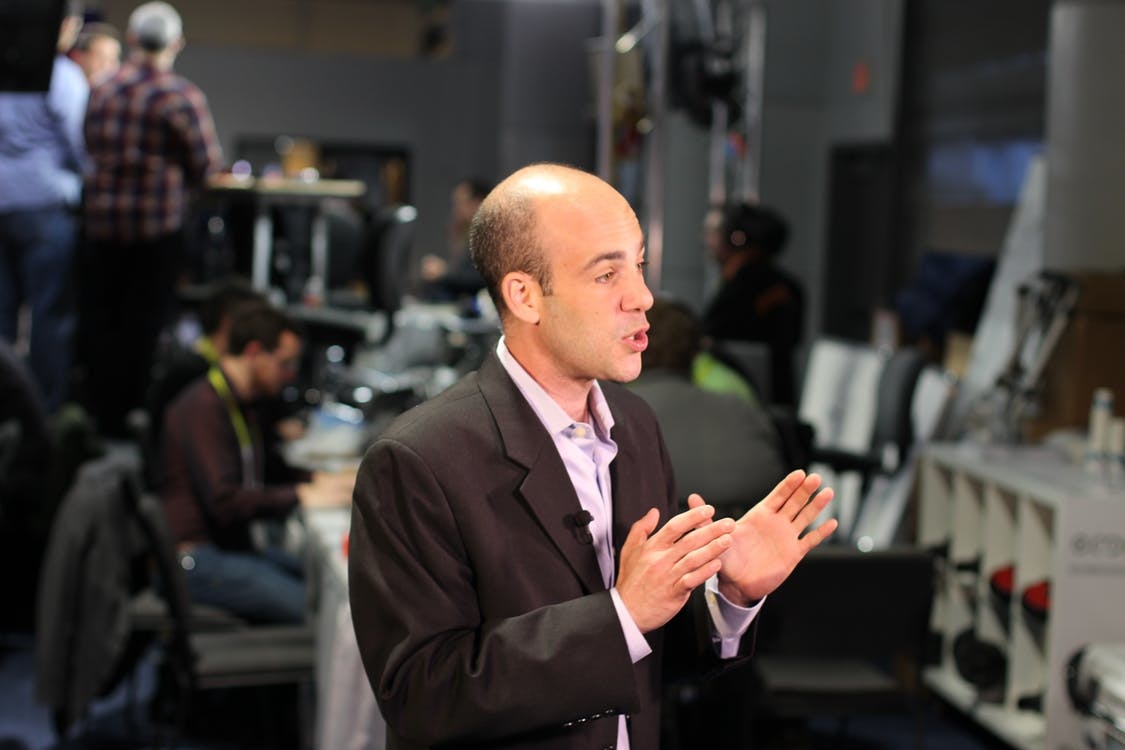Workplace Phrases & Jargon We Need to Stop Using

Feb 21 | 2018

Shutterstock
We are creatures of habit, be it in our actions or through our words. And when it comes to words, some common ones threaded together need to be eliminated from the workplace. Commonly used (and often overused) workplace phrases and jargon are not only annoying but can become meaningless when incorporated into conversation after conversation.
 pexels.com
pexels.com
In fact, as per Independent, “A survey for Wonga.com found that office workers annoy their colleagues at least ten times a day with such phrases. A lot of office jargon seems to act as an intelligence amplifier. We feel that we sound brighter by using a jargon word instead of plain English. One way office jargon does this is by replacing plain, useful, straight-to-the-point-language with language that circumambulates the point.”
(adsbygoogle = window.adsbygoogle || []).push({});
If you aren’t one of those to blame for keeping this practice going, then you’ve surely been on the receiving end, with an open ear that you wish was stuffed with a wad of cotton. Yet, we have become so accustomed to these phrases and jargon that it becomes something we expect to hear during work calls, meetings, and sales pitches, and read in emails and memos.
What gives? Can’t we come up with something new to say? We don’t use these phrases and jargon in other areas of our lives, so why are they expected and accepted at work? Before becoming the next person to jump on the irritating conversation-crushing bandwagon, take note of these common workplace phrases and jargon and vow never to utter the words again. You’ll not only get your point across with more meaning since most of us have become numb to the sound of these, but co-workers, colleagues, bosses, clients, and staff will appreciate your flair for commanding the English language with a new way of communicating effectively and productively.
“Move the Needle”
You’ve surely heard this one before, if not once, then many times, as “move the needle” is a workplace favorite. And while the concept – “generate a reaction,” as described byMicrosoft – is an important one, why not more directly say, “generate a reaction?”
“Generate” is more powerful than “move,” and in 99 out of 100 cases, there is no physical “needle” to refer to when it comes to assessing change.
How about saying, “Let’s positively impact or move a project forward,” as Cheesy Corporate Lingo writes. The direct and confident nature of such a statement will encourage the team to get to work and make change that is noteworthy and valuable.
So, let’s move “move the needle” to the annoying workplace phrases graveyard.
“Thanks in Advance”
“Thanks in advance” is most commonly used in an email situation, but it is wildly overused and must no longer be the closer of an otherwise well-composed correspondence. Essentially, you are assuming that the person you are asking something of will automatically be on board to assist or comply. It is presumptuous and probably not what you intend to convey in the first place, which is thanks for reading my email and considering my proposition.
Academic Workflows on a Mac notes, “I find this trend bordering on offensive. When you ask someone to do something over email by the time they read to the end of the email they have neither done what you have asked nor have agreed. Another problem with this phrase is it implies that your obligation to say thank you is done and you don’t need to express gratitude after the person does what you have asked them to do.” They suggest swapping “thanks in advance” for a more fitting phrase such as,
- “I really appreciate any help you can provide.
- I will be grateful if you can send me this information.
- Many thanks for considering my request.
- In the meantime, thank you so much for your attention and participation.”
So, thanks in advance for cutting this phrase out of your workplace lingo.
(adsbygoogle = window.adsbygoogle || []).push({});
“Let’s Touch Base”
According toIntelligent Instinct, “‘Let’s touch base’ means roughly, ‘Let’s get together to review or gauge our current status’.” Yet for some reason, saying “let’s get together” isn’t workplace-savvy enough to fit the bill.
Surely most people don’t use this phrase at home – “Johnny, let’s touch base after you do the dishes,” or “After our Mommy and Me class, let’s touch base at the coffee shop and plan Katie’s surprise party,” so why must we do all this base-touching at the office? Most of us aren’t ball players, so there’s no reason to round any bases.
As perHubspot, “A Glassdoor survey revealed roughly one in four employees think ‘touch base’ is the most annoying buzzword. So, if you often toss it around, you might be irritating your coworkers, prospects, and connections.”
Hubspot offers some less-annoying “Let’s touch base” alternatives that are far straightforward:
- I’ll call you at (date and time)
- Can we meet for (X minutes) some time (this week, month, etc.)?
- Let’s meet again in a (day, week, month, etc.)
- Let’s share our progress…
- Let’s catch up…
- Please call me…
- Please send me an update/ I’ll send you an update…
See, it’s easy to “touch base” without having to strike out in your conversation.
 pexels.com
pexels.com
Some other doozies?…
- “I Don’t Have the Bandwidth” – “Something business people say to describe the resources needed to complete a task or project,” as defined byUrban Dictionary.
- “Where’s the Value-Add?” – “Term used in service and retail industries, meaning to connect a service or additional product to a product at no immediate cost to the buyer. This cost is often included (read: hidden) in the base price, but is called out to make the customer feel as though they are getting more than they paid for,” as per Urban Dictionary.
- “Let’s Circle Back” – “Connecting with folks on a business issue and letting things happen, then going back to them after a few days or after things evolve,” as defined by Net Lingo.
- “Think Outside the Box” – “To think imaginatively using new ideas instead of traditional or expected ideas,” as perCambridge Dictionary.
- “It’s in the Pipeline” – As defined by The Free Dictionary by Farlex, “In progress or about to be started or implemented.”
- “Low-Hanging Fruit” – “A thing or person that can be won, obtained, or persuaded with little effort,” as defined by English Oxford Living Dictionaries.
Reboot your workplace vocab and rid yourself of those phrases and jargon that are getting under everyone’s skin. “To-the-point” is always better than “What’s the point?”
 pexels.com
pexels.com
- "I really appreciate any help you can provide.
- I will be grateful if you can send me this information.
- Many thanks for considering my request.
- In the meantime, thank you so much for your attention and participation."
So, thanks in advance for cutting this phrase out of your workplace lingo.
(adsbygoogle = window.adsbygoogle || []).push({});
"Let's Touch Base"
According toIntelligent Instinct, "'Let's touch base' means roughly, 'Let's get together to review or gauge our current status'." Yet for some reason, saying "let's get together" isn't workplace-savvy enough to fit the bill.
Surely most people don't use this phrase at home – "Johnny, let's touch base after you do the dishes," or "After our Mommy and Me class, let's touch base at the coffee shop and plan Katie's surprise party," so why must we do all this base-touching at the office? Most of us aren't ball players, so there's no reason to round any bases.
As perHubspot, "A Glassdoor survey revealed roughly one in four employees think 'touch base' is the most annoying buzzword. So, if you often toss it around, you might be irritating your coworkers, prospects, and connections."
Hubspot offers some less-annoying "Let's touch base" alternatives that are far straightforward:
- I'll call you at (date and time)
- Can we meet for (X minutes) some time (this week, month, etc.)?
- Let's meet again in a (day, week, month, etc.)
- Let's share our progress…
- Let's catch up…
- Please call me…
- Please send me an update/ I'll send you an update…
See, it's easy to "touch base" without having to strike out in your conversation.
 pexels.com
pexels.com
Some other doozies?...
- "I Don't Have the Bandwidth" – "Something business people say to describe the resources needed to complete a task or project," as defined byUrban Dictionary.
- "Where's the Value-Add?" – "Term used in service and retail industries, meaning to connect a service or additional product to a product at no immediate cost to the buyer. This cost is often included (read: hidden) in the base price, but is called out to make the customer feel as though they are getting more than they paid for," as per Urban Dictionary.
- "Let's Circle Back" – "Connecting with folks on a business issue and letting things happen, then going back to them after a few days or after things evolve," as defined by Net Lingo.
- "Think Outside the Box" - "To think imaginatively using new ideas instead of traditional or expected ideas," as perCambridge Dictionary.
- "It's in the Pipeline" – As defined by The Free Dictionary by Farlex, "In progress or about to be started or implemented."
- "Low-Hanging Fruit" – "A thing or person that can be won, obtained, or persuaded with little effort," as defined by English Oxford Living Dictionaries.
Reboot your workplace vocab and rid yourself of those phrases and jargon that are getting under everyone's skin. "To-the-point" is always better than "What's the point?"
 pexels.com
pexels.com

 pexels.com
pexels.com








